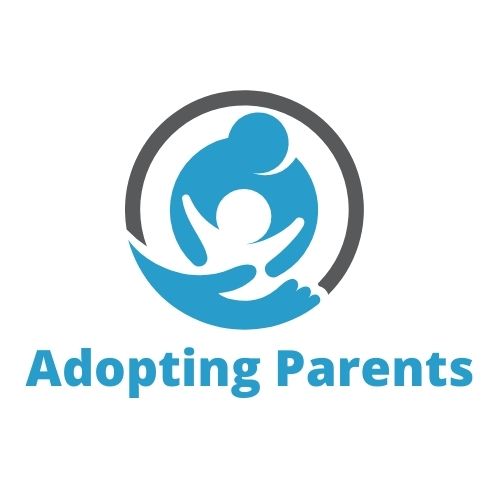Adoption is a deeply emotional and transformative journey that changes the lives of not only the child being adopted but also the adoptive parents. While it is a beautiful way to build a family, adoption is also a legal process that involves a complex set of laws and regulations. Understanding these adoption laws and regulations is crucial for both birth parents and adoptive parents to ensure a smooth and legally sound adoption process. In this comprehensive guide, we will delve into the world of adoption laws, regulations, and the various legal aspects involved in the adoption process.
The Legal Framework of Adoption
Adoption laws vary significantly from one country to another and even from one state or province to another within the same country. These laws govern the entire adoption process, from eligibility criteria to the finalization of the adoption.
1. Eligibility and Qualifications
Before embarking on the adoption journey, it’s essential to understand the eligibility criteria set forth by adoption laws. These criteria can encompass age, marital status, income, criminal background checks, and even health conditions. Eligibility requirements are designed to ensure the well-being of the child and the suitability of prospective adoptive parents.
2. Consent and Relinquishment
In many cases, adoption involves birth parents voluntarily relinquishing their parental rights to their children. Adoption laws outline the requirements and procedures for obtaining this consent. Consent must typically be given freely, knowingly, and without coercion. Birth parents may have a specific waiting period to revoke their consent, depending on the jurisdiction.
3. Home Study
One of the most critical aspects of adoption is the home study. Adoption agencies or social workers conduct comprehensive home studies to assess the prospective adoptive parents’ suitability for adoption. This process includes interviews, background checks, home visits, and reference checks. Adoption laws specify the standards and requirements for the home study.
4. Interstate and International Adoption
Adoption laws become even more complex when the adoption involves different states or countries. Interstate adoption regulations govern the transfer of children from one state to another, while international adoption laws regulate adoptions across national borders. These laws aim to ensure the child’s protection and the legal recognition of the adoption in both the sending and receiving countries.
5. Adoption Agencies and Facilitators
Many adoptions are facilitated through adoption agencies or facilitators. Adoption laws govern the licensing, operation, and ethical conduct of these entities. Prospective adoptive parents should work with accredited and reputable agencies to ensure that their adoption process complies with all legal requirements.
Types of Adoption
The legal framework of adoption also varies depending on the type of adoption:
1. Domestic Adoption
Domestic adoption involves the adoption of a child within one’s own country. In the United States, for example, domestic adoption laws can differ significantly from one state to another. Prospective adoptive parents must be aware of their state’s specific requirements and regulations.
2. International Adoption
International adoption, also known as intercountry adoption, involves adopting a child from a foreign country. This type of adoption requires adherence to the laws and regulations of both the sending and receiving countries. The Hague Convention on Protection of Children and Co-operation in Respect of Intercountry Adoption has established international adoption standards in many countries.
3. Stepparent Adoption
Stepparent adoption occurs when a spouse or partner legally adopts their spouse or partner’s child. While this type of adoption can be relatively straightforward in some cases, it still requires adherence to adoption laws and regulations.
4. Foster Care Adoption
Foster care adoption involves adopting a child who has been placed in the foster care system. The legal process for foster care adoption can vary depending on the child’s situation and the state’s laws.
5. Open Adoption
Open adoption allows for ongoing contact between the birth parents, adoptive parents, and the adopted child. Adoption laws may specify the terms and conditions of open adoption agreements and how they can be enforced.
Finalization of Adoption
The finalization of adoption is a significant legal milestone. This process culminates with a court hearing in which a judge reviews the adoption case and issues a final decree of adoption. This decree legally establishes the adoptive parents as the child’s legal parents, and it is an essential document for obtaining a new birth certificate with the child’s new name and the adoptive parents’ names.
Post-Adoption Legal Matters
Adoption is not just a legal event; it also comes with various post-adoption legal matters that adoptive families should be aware of:
1. Birth Certificate Amendment
After the adoption is finalized, adoptive parents can apply for an amended birth certificate that reflects the child’s new name and lists the adoptive parents as the child’s legal parents.
2. Adoption Assistance and Subsidies
In some cases, adoptive families may be eligible for adoption assistance or subsidies. These financial supports can help cover the costs of caring for a child with special needs or other challenges.
3. Open Adoption Agreements
If the adoption is open and involves ongoing contact between the birth and adoptive families, the legal enforceability of the open adoption agreement may be outlined in adoption laws.
4. Post-Adoption Contact and Visitation
In certain situations, adoptive families may seek post-adoption contact or visitation with the child’s birth family. Adoption laws may govern how such arrangements are made and enforced.
5. Legal Name Change
Adoptive parents can legally change their child’s name as part of the adoption process. This change is reflected on the amended birth certificate.
Conclusion
Adoption is a beautiful way to build a family and provide a loving home to a child in need. However, it is essential to approach adoption with a thorough understanding of the legal aspects and regulations that govern the process. By doing so, prospective adoptive parents can ensure that their adoption is legally sound and that the best interests of the child are protected throughout the journey. Consulting with adoption attorneys and working with accredited adoption agencies are essential steps in navigating the complex legal landscape of adoption and ensuring a successful and legally recognized adoption experience.





